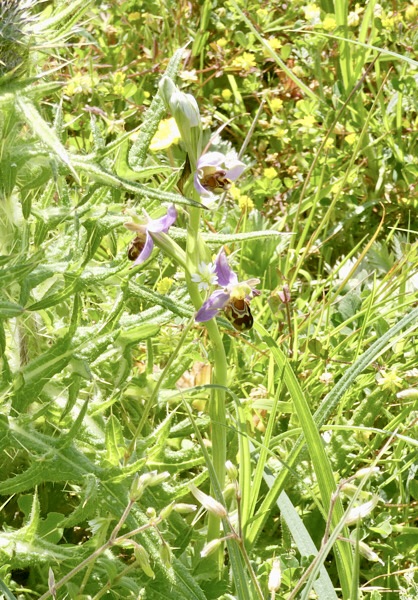Light variable, but mainly westish winds. Cool in the morning but warmed up when the sun came out this afternoon.
South shore (MD)
Common Scoter 1 male - as expected, it followed exactly the same routine as yesterday (and tomorrow?). This first clip is from the saltmarsh slipway, the island is just south of the saltmarsh. It went to this island as soon as the tide reached it. This clip was taken 90 minutes before high water.
 |
| Male Common Scoter, shedding the outer layer of its upper mandible |
This is it arriving at the saltmarsh.
As Pete said......moult time
Unless it is seriously disturbed, there is no reason why it shouldn't continue this pattern, at least for the duration of these spring tides, which take us through to Sunday (MD)
Curlew 6 (5+1) to Red Nab from north side
Rock Pipit 2 adults - Red Nab and Waterfall
Linnet 2 on saltmarsh 10 including at least 4 newly fledged birds between lighthouse and waterfall
Mediterranean gull 5 x 2nd calendar year at least - 5 seen feeding on the outflows and later, there are five in this clip of them resting on Red Nab.
One of the new birds has a particularly well developed dark head and dark wings. I had a quick check this evening, this is it on No.2 outflow, waiting at the end of the dividing wall for a suitable titbit to float past.
Wildfowl pretty much unchanged, except the young Little Grebes are now diving with the adults. Sorry about the shaky nature of this clip.
I didn't check the marsh areas so warbler numbers quite low
Willow Warbler, Chiffchaff, Blackcap and Sedge warbles heard singing
Butterflies:
Not many about, but it has been cool.
Small Heath
Common Blue
Large Skipper
Speckled Wood
Small Tortoiseshell
Plus
Burnet Companion
Cinnabar
Dragonflies, again not many but better than of late
Emperor several
Broad-bodied Chaser several
Four-Spotted Chaser several
Black Tailed Skimmer 2 males on main pond
 |
| Female Broad-bodied Chaser |
 |
| A very fresh Four-Spotted Chaser |
 |
| Male Black-Tailed Skimmer |
Bee Orchids - I've been asked where is best to find this species. I hadn't looked for any this year, so I did today. There were several areas with one or two spikes, typically in sparsely vegetated regions. I quickly found 20+ spikes on the high plateau between the "no swimming" pond and Tim Butler pond.
 |
| Bee Orchid |
Having said look in sparsely vegetated areas the above shot is clearly in quite lush vegetation. The shot below shows the location, it is just between the sparse and lush areas. There are probably 10 spikes within the area defined by the red box - good luck if you go to check them out.

No comments:
Post a Comment